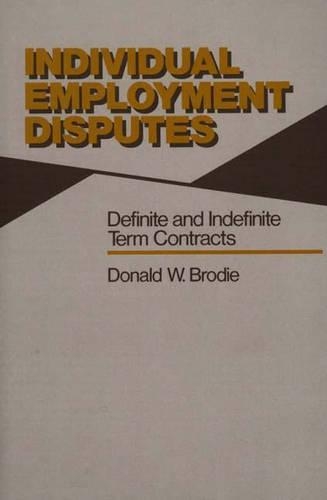
Individual Employment Disputes: Definite and Indefinite Term Contracts
(Hardback)
Publishing Details
Individual Employment Disputes: Definite and Indefinite Term Contracts
By (Author) Donald W. Brodie
Bloomsbury Publishing PLC
Praeger Publishers Inc
30th January 1991
United States
Classifications
Tertiary Education
Non Fiction
347.304189
Physical Properties
Hardback
280
Description
In this work, Donald Brodie examines the basic themes of current US employment law and identifies what is changing and what is not, using commonplace examples. Basing his conclusions on studies of state and federal court decisions and arbitration awards, Brodie focuses on the individual contract of employment, the elements that have remained constant, including judicial restraint, employer rights and just cause and the statutory elements that foster the most change. Brodie begins his study by identifying some of the elements that must be considered in determining whether an employment relationship exists, and follows this with a chapter discussing possible dispute resolution forums, such as courts, arbitration, due process, in-house grievance mechanisms and government agencies. Seperate chapters are devoted to the various facets of the doctrine of employer rights; the process of creating, modifying and ending the employment relationship and contract; and specific clauses in contracts that are subject to frequent disputes, particularly terms of duration, releases and waivers and noncompetition clauses. Other topics addressed include the just cause concept and the progress of evaluation and the interplay between statutes and employment contracts. A final chapter presents Brodie's conclusions, grouped into the categories of employer, employee and public interest.
Author Bio
DONALD W. BRODIE has been teaching labor and employment law at the University of Oregon School of Law for more than 20 years, and has written extensively in the field. Professor Brodie has written two books on labor law and numerous articles, two of which have been cited by the United States Supreme Court.
